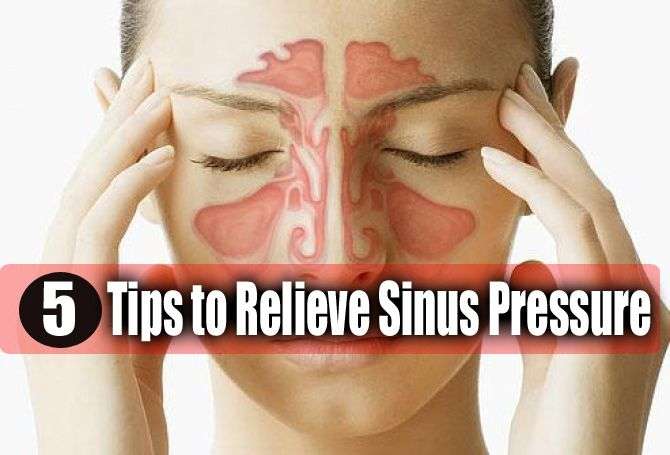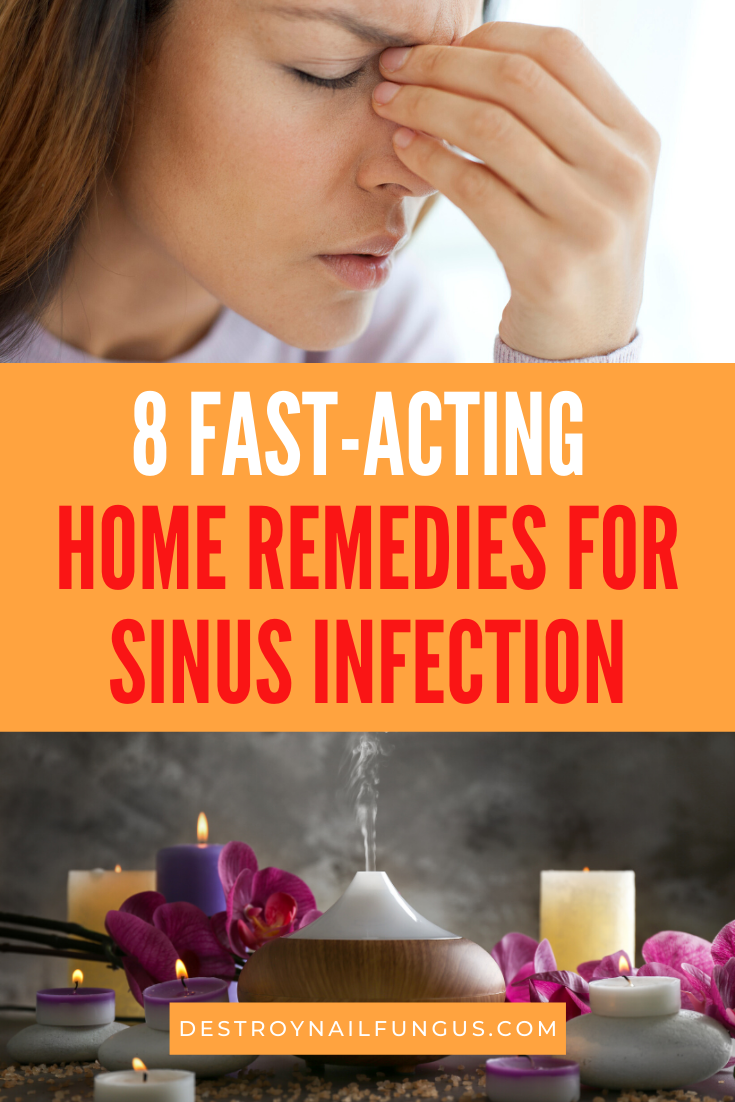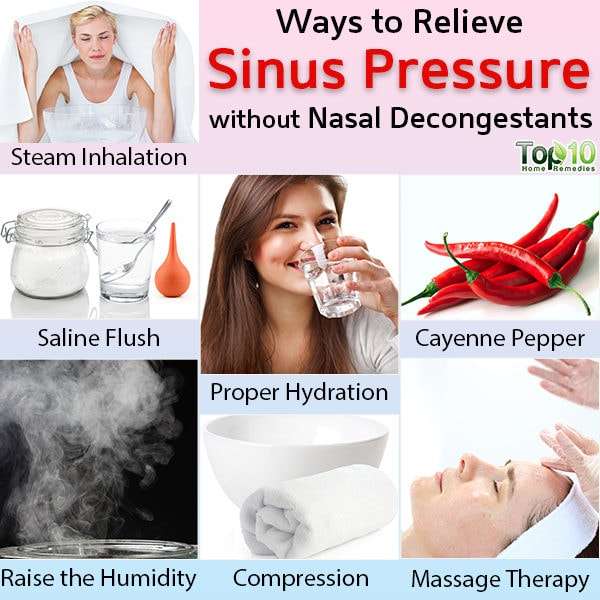Understanding The Biology Of Sinuses
Before we can speak about treatments and medicine, we need to delve into what sinuses are, where are they located, and how they work. Apart from that, its imperative for you to try and determine what is the actual cause of your sinus trouble. The reason is that the cure depends on it. Sinusitis can be caused by allergies, hay fever or severe infections, just to name the major categories. Curing it will mean different approaches, ranging from taking a steam to a full-blown antibiotic treatment. Therefore, here are the basic things you need to know about sinuses and how they work.
Simply put, sinuses are 8 hollow cavities located in the skull. They are normally paired, two by two. The largest of them measure approximately 1 inch across while the others are rather smaller. The pairs include:
- The maxillary pair the biggest ones, located in the cheekbones, close to your teeth.
- The frontal pair located in the forehead, low center.
- The ethmoid pair located at the nasal bridge, right between the eyes.
- The sphenoid pair located in bones which are to be found behind the nasal cavity.
Sinuses are usually lined with tissue, soft and pink in color, which is called mucosa. When the body is functioning normally and is healthy, sinuses are empty, except for a thin layer of mucus that has the purpose of lubricating the mucosa. When the body becomes ill, the sinuses start to produce mucus abundantly, which leaks into the nose through a channel called the middle meatus.
Causes Of Sinus Pressure Headaches
Sinus headaches and inflammation can have a number of causes, including:
- Common cold virus or other rhinoviruses
- Flu virus
- Allergies
- Changes in humidity
Each of these different causes has different treatments, so its important to understand what is causing your symptoms in order to find a successful treatment.
Here Are Seven Effective Home Remedies For Sinus That Can Help You Tackle The Problem Naturally
1.Stay Hydrated
Drinking water, tea or juices without sugar are good ways to keep your system hydrated
2. Pungent SpicesSpices such as cayenne pepper with anti-inflammatory and antibacterial properties, help in breaking up and draining out congested mucus. Similarly, horseradish can be mixed with apple cider vinegar and lemon juice to create a mucus dissolving elixir. As an alternative, 1/4 teaspoon of the freshly grated horseradish root can be held in the mouth for a few minutes, once the taste has evaporated, it can be swallowed.
Spices such as cayenne pepper with anti-inflammatory and antibacterial properties
3.SteamThis one works like magic and doctors prescribe it too. Add 3 drops of pine or rosemary oil with 3 drops of peppermint, and 2 drops of eucalyptus oil to a steaming hot bowl of water or add 3 drops of rosemary with 1 drop of thyme and peppermint oil. With your face down over the water, drape a towel over the back of your head and inhale the steam, this will help in clearing a blocked nasal passage.
Turmeric root is a wonderful, fragrant spice commonly found in IndiaApple cider vinegar is a wonderful natural ingredient with many health benefits
6. SoupA number of studies support the benefits of having soup in helping ease congestion. From chicken soup to vegetable soup with fresh herbs, you can choose from a range of recipes and pick your favourite. It is the steam combined with a bunch of healthy ingredients which help clear the sinuses.
Recommended Reading: Do You Sneeze With Sinus Infection
What Are The Common Medications To Treat Sinus Infection
The primary six types of medications and surgery used for treating sinus infections include:
They help in reducing swelling, pressure, and congestion of mucus in the nasal passages. Usually used as nasal sprays, such as Afrin Nasal Spray and oral pills like Sudafed. These medications should be taken as prescribed by the doctor and for a maximum of three days.
Tylenol and nonsteroidal anti-inflammatory drugs: Over-the-counter pain relievers may help reduce symptoms associated with a sinus infection. It helps relieve pain, swelling, and fever. However, these should not be taken for longer periods.
Antibiotics: Antibiotics are usually not necessary for sinus infections, but physicians may prescribe one if they suspect a bacterial infection is the cause of sinusitis. Generic antibiotics like amoxicillin or cefdinir can be used to stop the growth of or kill bacteria to resolve a sinus infection. Other popular antibiotics prescribed for sinus infections include Zithromax or . Common side effects of antibiotics include nausea, vomiting, and diarrhea.
Steroids:Corticosteroids can improve sinus drainage by reducing inflammation of the sinuses. Doctors typically only prescribe steroids for severe sinus infections. The most common steroids used for sinus infection treatment are prednisone and Medrol . Prolonged use of steroids can cause disruptions in the bodyâs hormone levels, so they should only be taken as advised.
Saline Spray And Sinus Rinses

Using a saline solution, rinse your nose and sinuses with a neti pot or other irrigation system.
You can buy saline solution over the counter or make your own at home with distilled water and saline packets. Saline spray also comes in small bottles that you can spray directly into your nose.
Sinus rinses like these work by flushing mucus out of the nose and sinuses to keep things flowing freely.
Saline also has a natural decongesting effect, meaning it shrinks your swollen nasal tissues and makes it easier for you to breathe through your nose!
Read Also: Does Prednisone Help With Sinus Infection
What Causes Sinus Pain
Sinuses are hollow spaces in your facial bones that are lined with membranes that secrete mucus. Sinus pain is often a result of inflammation that blocks mucus from draining and leads to pain.
Sinus swelling can follow viral illnesses, including the common cold, or it can be due to mucus production from allergies or breathing in polluted air that leads to irritation. It can also happen if there are nasal blockages due to abnormal growths called nasal polyps or structural abnormalities, such as a deviated septum, that make you prone to congestion.
Avoid Sinus Pain Triggers
“One of the most important things to avoid is over-the-counter nasal decongestant sprays. They may give some fast relief, but after a few days they make sinus pressure and nasal congestion much worse,” warns Das. Some other things you can do to prevent sinus pain include avoiding alcohol, which can aggravate sinus pain and congestion cleaning your humidifier to avoid fungal allergies washing your bedding in hot water to decrease allergy exposure and avoiding swimming, diving, or flying when you have sinusitis, a common cold, or nasal allergy.
Recommended Reading: Mucinex And Advil Cold And Sinus
The Right Way To Treat A Sinus Infection
5 min Read Time
Your head is throbbing, especially around your eyes. You cant stop coughing, and for some reason, your breath is terrible. Blowing your nose is a mess.
Bad news: You could have a sinus infection. Most frequently triggered by the common cold, over 30 million American adults are diagnosed with sinusitis yearly.
So, what exactly are sinus infections? How can you tell if you have one? And holy cow how can you feel better as quickly as possible?
Use Some Steambut Don’t Expect A Long
Steamwhether from a humidifier or a hot showercan provide some symptomatic comfort, but isnt really a long-term solution, Mas Takashima, M.D., chair of otolaryngology at Houston Methodist Hospital, tells Health.
Certain areas are moist anyway and you can cause an overgrowth of mold , he explains. But for people who feel dry air or excessively dry sinuses are contributing to their pain, steam can be helpful.
You May Like: How To Get Rid Of A Sinus Infection Without Medication
Sinus Infection Home Remedies Recommended By A Doctor
Philip Scolaro, MD
You probably dont give too much thought to your ability to breathe through your nose until you wake up with a sinus infection and that ability is gone!
Sinus infections, sometimes called acute sinusitis, can steal your joy pretty quickly.
A lot of viruses start with nasal symptoms. If you have a scratchy throat, congestion, and a runny nose, youve probably got a virus on your hands.
Proper Rest And Sleep Posture
Sleeping peacefully can be quite challenging when you feel like your head is going to explode due to mounting sinus pressure. However, getting enough rest and shut-eye is extremely important for timely healing.
A good nights sleep can help the body to heal as, when youre at rest, your body is able to produce more white blood cells essential for combating the viruses and other bacteria that may be at the root of your respiratory discomfort.
However, for sleep to be effective in alleviating sinus symptoms, you must do it right. Certain sleeping positions can end up adding to your discomfort and are to be avoided. These include lying flat on your bed as it can increase mucus buildup in your nasal passages and augment sinus pressure. You may be jolted out of sleep due to hampered breathing on account of the congestion, which can considerably disrupt your sleep cycle.
Instead, prop a few pillows under your head to keep it raised above your heart. This will help prevent sinus buildup and can help you to breathe more comfortably.
To enjoy better sleep, refrain from indulging in overstimulating activities or consuming sugary or caffeinated beverages too close to bedtime.
Also Check: Can Sinus Infection Turn Into Pneumonia
Home Remedies For Sinus Infections: How To Cure A Sinus Infection Naturally
If you are experiencing mild symptoms or if sinusitis is not a regular problem for you, then you may want to consider a sinus infection home remedy. One of the primary ways to help reduce symptoms and eliminate the infection in the sinus cavities is to promote natural drainage of the mucus that is trapped in the sinuses. Most natural remedies involve finding ways to reduce inflammation and increase drainage. These include:
- Increasing water intake: The body needs a minimum level of fluids in order to properly function. Dehydration can prevent the body from healing naturally.
- Vapor or mist: Various types of humidifiers can provide enough additional moisture to break up small blockages in the sinus passage. Once these blockages are clear, the sinuses may drain naturally.
- Sinus rinse or neti pot: These solutions have grown in popularity over the past few years. They work on the idea that a purified saline solution can break up the sinus blockage, clean the sinus cavity, and clear out the infection. When used as directed, they may provide real relief for some patients. Before considering the use of a sinus rinse, the utmost care should be taken to follow all directions. In the case of a severe infection or the misuse of a product, they can cause more damage and potentially increase the severity of an infection.
Causes Of Sinus Pressure

Whenever there is a breach in this security wall such that an irritant finds its way into the respiratory system, the smooth sinus drainage is bound to get disrupted. Respiratory infections such as the common cold as well as seasonal allergies can lead to an irritation or inflammation of the mucous membrane that lines the insides of your nose. Subsequently, the bodys natural defenses go into overdrive to flush out the culpable irritants, and this results in an increased amount of mucus secretion. The swelling of the mucosal lining makes it difficult for the sinuses to drain out the excessive mucus, leading to nasal blockage and subsequent buildup of sinus pressure.
Also Check: How To Ward Off A Sinus Infection
How I Got Rid Of A Sinus Infection In 2 Days
First Id like to remind you that Im not a doctor, and this information should not replace communicating with your doctor, especially if you suffer from chronic sinus inflammation.
Your doctor may prescribe antibiotics, which were not helpful for me and medication to help with your symptoms.
But, were here for the natural sinus relief.
What Are The Causes And Triggers Of Sinus Headaches
Sinus headaches are most often a symptom of sinusitis, in which the sinus becomes inflamed from allergies or other triggers like an infection. Sinus headaches may also result from seasonal allergies that last an extended period of time. This is called rhinitis, or hay fever. Sinus infections and sinus blockages can also trigger sinus headaches.
Recommended Reading: Severe Sinus Pressure But No Congestion
When To See A Doctor For Sinus Pain
If your sinus symptoms are not getting better with at-home treatments, and if your sinus symptoms last longer than seven to 10 days, you should see a doctor for treatment. Allina Health has many convenient care options for care, from online visits to walk-in care, to help you get better fast.
If you have frequent or reoccurring sinus infections, you may want to see an ear, nose and throat for your treatment options.
Treat Sinus Pain With Humidity
“Dry, thick mucus in your nose and sinus passages can form crusts that block sinus drainage and trap viruses and other particles. Increasing humidity and getting more fluid into your body can help your mucus thin out and get moving again,” says Dr. Das. Some natural ways to get your sinuses draining and relieve sinus pressure include drinking plenty of fluids using a humidifier avoiding cold, dry air taking plenty of steamy showers and drinking a cup of hot tea or soup.
Read Also: Best Medicine For Severe Sinus Infection
What To Do For Sinus Pressure And Pain At Home
Here are the top 10 at-hometreatments to help ease your sinus pain and inflammation to get rid of your sinus infection faster.
Over The Counter Medications
For help alleviating sinus pressure and pain, try ibuprofen and a decongestant. Some medications include a combination of pain reliever and decongestant.
Mild antihistamines like Claritin and Allegra are helpful in moderation. Strong antihistamines like Benadryl are often way too drying. Be careful not to take antihistamines too often.
Even though you want your nose to stop running, too many antihistamines can make it more likely that youll get sinus infections in the future.
Drugs like Mucinex and Flonase can also be helpful in thinning the mucus in your nose and sinuses.
If you use Afrin, make sure you stop after three days. Though it can seem like a miracle drug, using it more than three days in a row can lead to something called rebound congestion. In other words, when you stop using the Afrin after continuous use, your nose becomes more congested than it was in the first place!
Read Also: If Sinus Infection Is Left Untreated
How Sinus Massage Helps
Massaging the sinuses is thought to help sinus pain and congestion by relieving pressure and helping the sinus drain out mucus. The gentle pressure and warmth from the hands may also help by increasing blood circulation to the area.
However, not a lot of research has been done on sinus massage. A few smaller studies show promising results, but more research is needed.
In one recent study, facial massage therapy significantly reduced the severity of sinus headaches in 35 women. In another study in male athletes with chronic sinusitis, facial therapeutic massage was shown to significantly reduce facial congestion and facial tenderness compared to the control group who didnt receive a massage.
How Are Sinus Headaches Prevented

If you have reoccurring sinus headaches as a symptom of sinusitis or seasonal allergies, you may need to consider prescription medication to manage the condition.
Lifestyle changes to reduce congestion, such as avoiding allergens and incorporating aerobic exercise into your routine, might decrease how many headaches you get.
In cases of chronic sinusitis, a nasal surgery such as a balloon sinuplasty might be the only way to stop getting more sinus headaches.
Also Check: How Do You Get S Sinus Infection
What Is The Long
Sinus infections are primarily caused by allergies. The most common allergens are pollen, dust mites and pet dander. Those with repeated sinus infections may have chronic sinusitis, which means long-term solutions may be a better option.
Immunotherapy can help. These allergy shots enable your body to decrease sensitivity to common allergens. The Raleigh sinus doctors at Raleigh Medical Group specialize in helping patients with chronic allergy and sinus problems. While immunotherapy is effective, the treatment can take as long as one year to achieve noticeable results and maintenance treatment will likely be needed.
To find out if youre a candidate for immunotherapy, schedule an appointment with one of our internal medicine doctors. We welcome the opportunity to serve you.